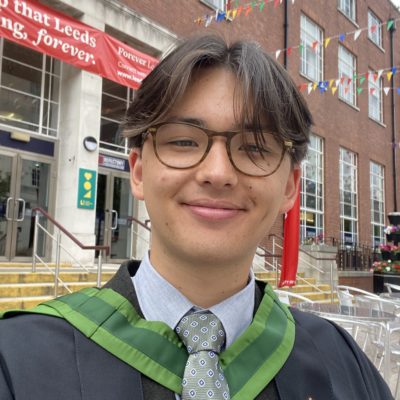About me
Medicinal chemistry has always been my focus, having completed my undergraduate and master’s degree in the field, as well as spending a year in industry at GSK in their MedChem department. During my studies I’ve had the privilege to work on the cutting edge of chemistry, focussing on protein degradation through design and synthesis of PROTACs and fluorinated fragment synthesis, designed for high-throughput NMR screening. I’m really excited about my current project because it takes a different approach to drug discovery, utilising computational design to create new therapeutics. I’ve always had the goal of making a difference with my work, something this project’s unique approach to tackling antimicrobial resistance within DNA gyrase gives me the opportunity to do.
My Project
Antimicrobial resistance (AMR) is a growing issue that undermines the effectiveness of modern antibiotics. One group being affected are the fluoroquinolones (FQs), a family of major frontline antibiotics that treat bacterial infections via the inhibition of DNA gyrase. A recently characterised allosteric site on Staphylococcus aureus DNA gyrase offers the potential to drug the enzyme via a new mode of action. This allosteric site is distinct to the fluoroquinolone-binding site, meaning allosteric inhibitors could overcome the FQ resistance due to point mutations observed in the clinic. The project aims to investigate this allosteric site in Mycobacterium tuberculosis and utilise a computational workflow to help design potent new inhibitors.

